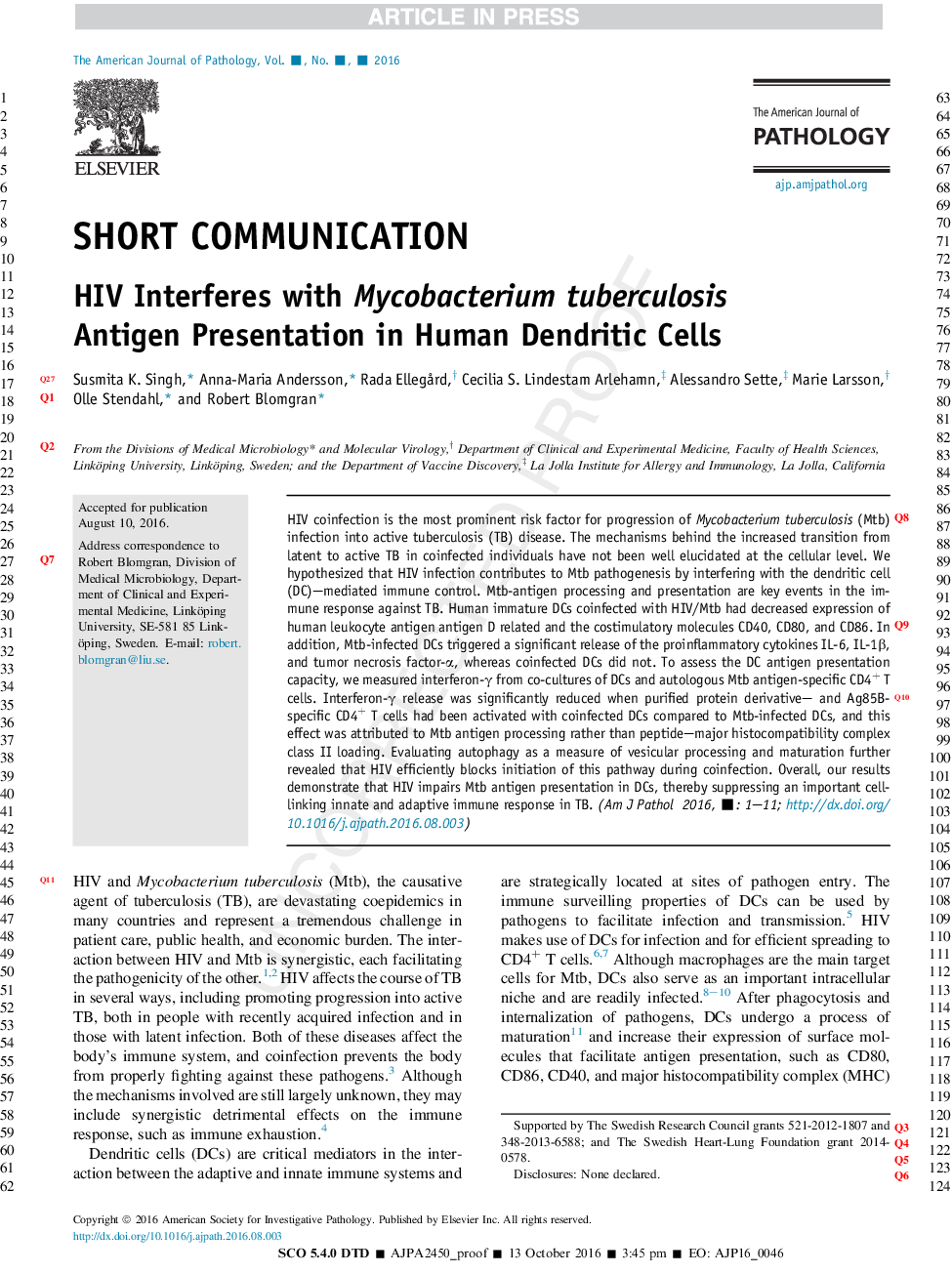| Article ID | Journal | Published Year | Pages | File Type |
|---|---|---|---|---|
| 5596190 | The American Journal of Pathology | 2016 | 12 Pages |
Abstract
HIV coinfection is the most prominent risk factor for progression of Mycobacterium tuberculosis (Mtb) infection into active tuberculosis (TB) disease. The mechanisms behind the increased transition from latent to active TB in coinfected individuals have not been well elucidated at the cellular level. We hypothesized that HIV infection contributes to Mtb pathogenesis by interfering with the dendritic cell (DC)-mediated immune control. Mtb-antigen processing and presentation are key events in the immune response against TB. Human immature DCs coinfected with HIV/Mtb had decreased expression of human leukocyte antigen antigen D related and the costimulatory molecules CD40, CD80, and CD86. In addition, Mtb-infected DCs triggered a significant release of the proinflammatory cytokines IL-6, IL-1β, and tumor necrosis factor-α, whereas coinfected DCs did not. To assess the DC antigen presentation capacity, we measured interferon-γ from co-cultures of DCs and autologous Mtb antigen-specific CD4+ T cells. Interferon-γ release was significantly reduced when purified protein derivative- and Ag85B-specific CD4+ T cells had been activated with coinfected DCs compared to Mtb-infected DCs, and this effect was attributed to Mtb antigen processing rather than peptide-major histocompatibility complex class II loading. Evaluating autophagy as a measure of vesicular processing and maturation further revealed that HIV efficiently blocks initiation of this pathway during coinfection. Overall, our results demonstrate that HIV impairs Mtb antigen presentation in DCs, thereby suppressing an important cell linking innate and adaptive immune response in TB.
Related Topics
Health Sciences
Medicine and Dentistry
Cardiology and Cardiovascular Medicine
Authors
Susmita K. Singh, Anna-Maria Andersson, Rada Ellegård, Cecilia S. Lindestam Arlehamn, Alessandro Sette, Marie Larsson, Olle Stendahl, Robert Blomgran,
